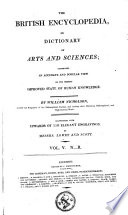 | William Nicholson - Natural history - 1809 - 684 pages
...and « + « — 1 •* the nlh or last term. • " The sum of a series of quantities in arithmetical progression is found by multiplying the sum of the...first and last terms by half the number of terms." Let a be the first term, b the common difference, n the number of terms, and » the sum of the series... | |
 | William Nicholson - 1809 - 716 pages
...fourth, &c. and « -fa — l -u the nlh or last term. " The sum of a series of quantities in arithmetical progression is found by multiplying the sum of the first and last terms by lialf the number of terms." Let a be the first term, 6 the common difference, я the number of terms,... | |
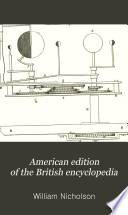 | William Nicholson - Natural history - 1821 - 376 pages
...fourth, &c. and a + n — 1A the «th or last lerm. " The sum of a series of quantities in arithmetical progression is found by multiplying the sum of the...first and last terms by half the number of terms." Let a be the first term, A the common difference, n the number of terms, and a the sum of the series:... | |
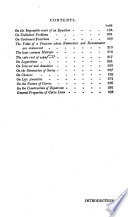 | James Wood - Algebra - 1825 - 322 pages
...fourth, &c. and a + и - 1 . 6 the иlh term. (212.) The sum of a series of quantities in arithmetical progression is found by multiplying the sum of the first and last terms by half the number of terms. Let a be the first term, b the common difference, и the number of terms, and s the sum of the series:... | |
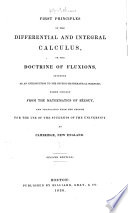 | Etienne Bézout - Calculus - 1836 - 216 pages
...units in t, that is, calling the velocity- u, u will equal g t. Since the velocities g, 2 *,•, &ic. are each nothing but the space which the moving body...(substituting u for its value gt, which is the last term,) (S + M) x -«•• Whence, if we represent the space by*, we have . = (£ + <) X -^Let us now conceive... | |
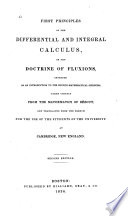 | Etienne Bézout - Calculus - 1836 - 218 pages
...are units in t, that is, calling the velocity u, u will equal g t. Since the velocities g, 2 g, &tc. are each nothing but the space which the moving body...(substituting u for its value gt, which is the last term,) (SH~ M) X ~o~ • Whence, if we represent the space by*, we have s = (g + u)Xj. Let us now conceive... | |
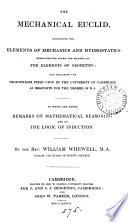 | William Whewell - 1837 - 226 pages
...#) = 9« +7.r - 5 a - 5x = 4 a + 2 a: 60. To find the sum of an arithmetical progression, multiply the sum of the first and last terms by half the number of terms. Thus the sum of 10 terms of 1, 3, 5, &C. is (1 + 19) x 5 = 100. For if l + 3 + 5 + &c. to 19 (10 terms)... | |
 | John D. Williams - Algebra - 1840 - 216 pages
...4iZ)-j-, &c. continued to n terms, we shall have CASE I. The sum of a series of quantities in arithmetical progression is found by multiplying the sum of the first and last terms by half the number of terms. Let a = first term, d = common difference, n = number of terms, and s = sum of the series. a + a-\-d... | |
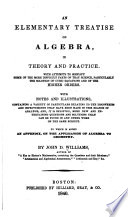 | John D. Williams - Algebra - 1840 - 634 pages
...&c. continued to я terms, we shall have CASE I. The sum of a series of quantities in arithmetical progression is found by multiplying the sum of the first and last terms by half the number of terms. Let a = first term, d = common difference, n = number of terms, and s = sum of the series. a _f- a_j_a... | |
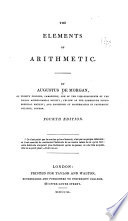 | Augustus De Morgan - Algebra - 1840 - 186 pages
...as before. The rule, then, is : To sum any number of terms of an arithmetical progression, multiply the sum of the first and last terms by half the number of terms. For example, what are 99 terms of the series 1, 2, 3, &c. ? The 99th term is 99, and the sum is (99... | |
| |